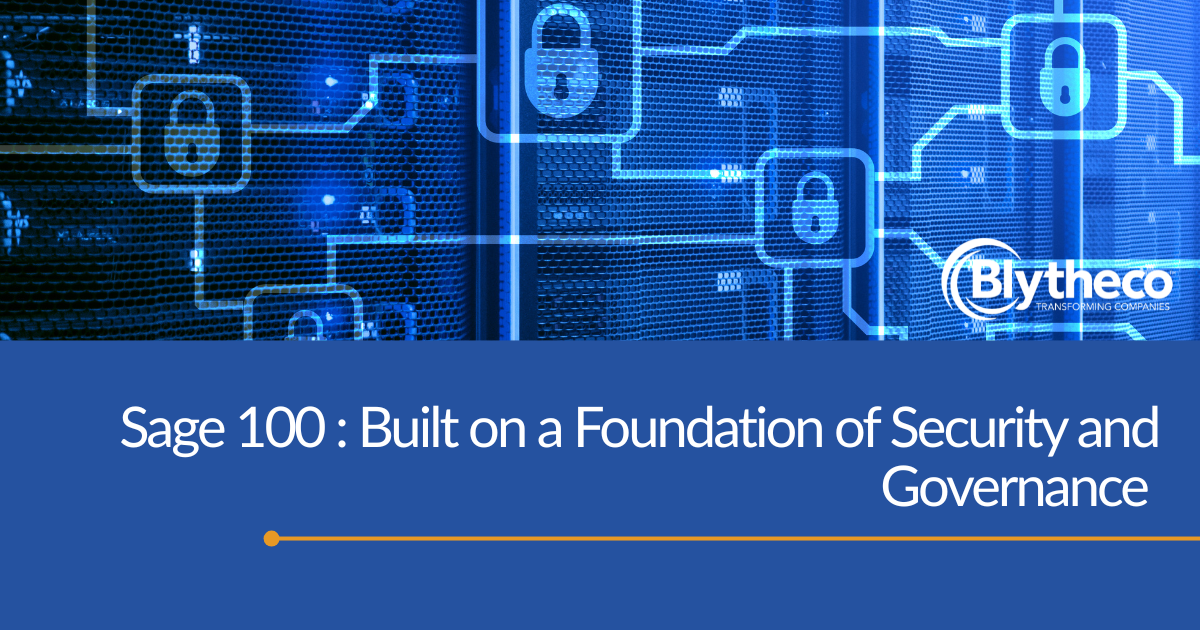


In today’s digital landscape, protecting your organization’s data is more than a best practice—it’s a business imperative. For decades, Sage100 has been trusted by thousands of businesses for its robust functionality and flexible deployment options. Behind the scenes, Sage 100 is supported by comprehensive security and governance measures designed to safeguard critical systems, ensure compliance, and provide peace of mind.
Sage takes security seriously. A dedicated Global Security team—led by a Deputy CISO and reporting directly to executive leadership—oversees every aspect of product security, compliance, and risk management. The company’s security governance program follows proven frameworks, including Microsoft’s Security Development Lifecycle (SDL), OWASP Top 10, and STRIDE threat modeling.
All employees and contractors undergo regular security awareness training, ensuring that security remains a shared responsibility across the organization. Specialized roles, like product engineers, receive additional annual training focused on secure development practices.
Because Sage 100 is a highly customizable, on-premise application, security is a shared responsibility. While Sage provides secure, rigorously tested core code, resellers and customer IT teams manage their own deployment environments. This includes implementing appropriate controls for Windows-based systems, virtual machines, or cloud configurations such as Azure or AWS.
Sage offers detailed best practice guidance, but ultimately, each organization maintains control over how Sage 100 is installed and secured in its environment. This model gives businesses flexibility while ensuring strong foundational security.
Sage 100 includes a wide range of built-in security features. These include
Additionally, Sage performs automated static code analysis, manual code reviews, and annual third-party penetration tests to identify and address potential vulnerabilities before they can become threats.
Disaster recovery and service-level agreements (SLAs) for Sage 100 are handled through hosting partners or internal IT teams, giving organizations the flexibility to tailor continuity strategies to their specific needs. Product updates are released two to three times a year, with critical patches made available promptly according to Sage’s service standards.
Sage 100 supports modern privacy requirements, including field-level encryption for personal data and anonymization tools that align with GDPR standards. While the system itself does not store credit card numbers, it supports secure integrations with payment processors, allowing businesses to maintain compliance without adding unnecessary risk.
For over three decades, Sage 100 has delivered trusted accounting and ERP solutions to mid-market businesses. Its layered approach to security—combining governance, technical controls, partner enablement, and regular testing—ensures your data and systems are protected in a rapidly evolving digital landscape.
Whether deployed on-premise or in the cloud, Sage 100 provides the flexibility to tailor security to your organization’s unique environment, backed by a proven security foundation from Sage.